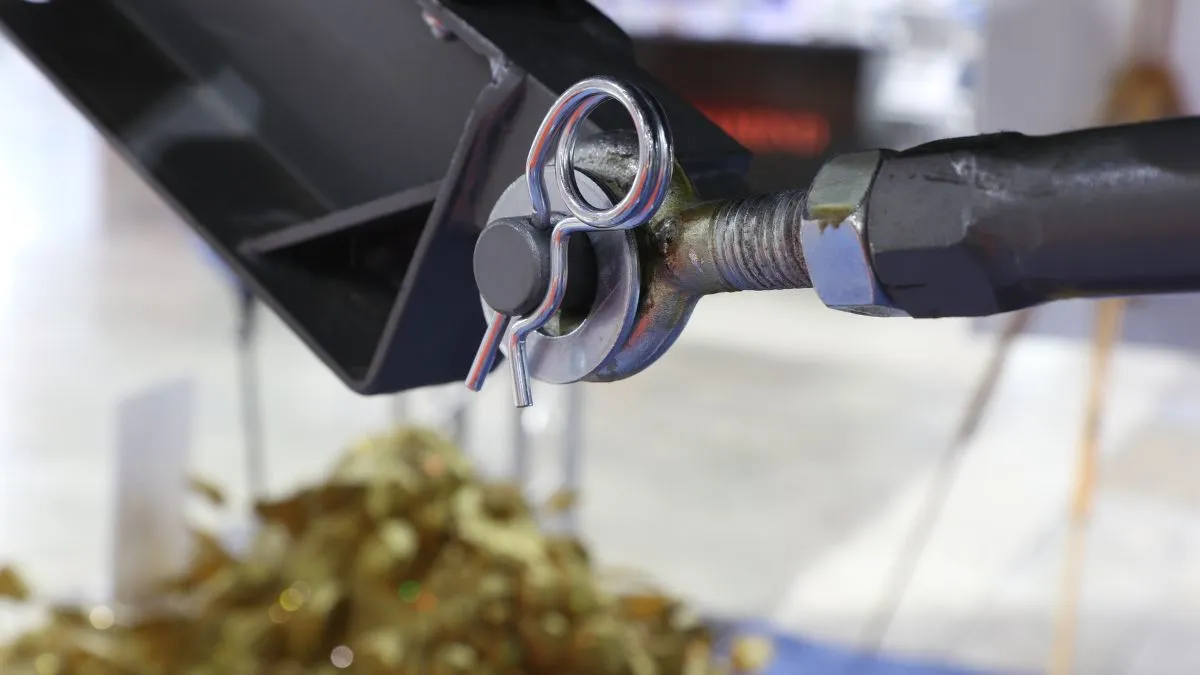When it comes to connecting two components securely, cotter pins are the unsung heroes. These small metal pins are designed to prevent nuts and bolts from loosening due to vibrations or movement. Whether you’re riding a bike, assembling furniture, or working with heavy machinery, cotter pins play a vital role in ensuring everything stays in place.
In the automotive industry, these are used to secure crucial parts like tie rod ends and brake calipers. Without them, safety could be compromised. In construction and engineering projects, these provide an added layer of security for structural integrity.
From simple household repairs to complex industrial applications, they offer a reliable solution for fastening various components together. Their versatility and strength make them indispensable in our everyday lives.
Table of Contents
Overview of Cotter Pins
Cotter pins are small but mighty fasteners that play a crucial role in various mechanical applications. These pins are typically made of metal and have a unique design featuring two tines that can be inserted into pre-drilled holes to secure different components together. One of the main advantages of cotter pins is their ability to prevent nuts, bolts, and other fasteners from loosening due to vibrations or movement.
The simple yet effective design of cotter pins makes them versatile and widely used in industries such as automotive, construction, machinery, and more. Whether it’s securing bicycle pedals or aircraft landing gear, cotter pins provide a reliable solution for keeping things in place. Their ease of installation and removal also make them convenient for quick repairs or adjustments on the go.
Popular Usage
These are small but mighty fasteners that play a crucial role in various everyday applications. One of the most popular uses of pins is in securing hitch pins on trailers and towing equipment. These humble little pins ensure that connections stay secure during transportation, providing peace of mind to drivers on the road.
In the automotive industry, cotter pins are commonly used in brake systems to secure clevis pins, ensuring that crucial components remain in place while driving. This simple yet effective mechanism helps maintain safety standards and prevents potential accidents caused by loose parts.
Moreover, these find their way into gardening tools such as lawnmowers and tillers to secure wheels and blades in place. This ensures smooth operation during yard work and prevents any mishaps due to loose or detached components. These may seem unassuming at first glance, but their versatility and reliability make them indispensable across various industries and daily tasks.
Varieties of Cotter Pins
When it comes to such pins, there are different varieties available to suit various applications. One common type is the standard cotter pin. These are simple, straight metal pins with a split at one end that can be inserted into a hole and bent to secure parts in place.
Another popular variety is the ring cotter pin. These pins have a loop at one end, making them ideal for use in situations where frequent disassembly may be required. Ring cotter pins provide a more convenient way to secure components while allowing for easy removal when needed.
Each type of cotter pin has its own unique advantages and uses depending on the specific requirements of the application. It’s essential to choose the right variety of cotter pin based on factors such as load capacity, ease of installation, and durability to ensure optimum performance in everyday tasks.
Standard Cotter Pins
Standard cotter pins are essential fasteners known for their versatility and strength. These pins are commonly used in various applications to secure components in place, preventing them from slipping or rotating. Made of durable materials like steel or stainless steel, standard cotter pins come in different sizes to accommodate diverse needs.
Their simple yet effective design consists of a straight metal pin with a split at one end and two tines that can be bent back upon insertion. This configuration allows the cotter pin to expand once inserted into a hole, creating a secure locking mechanism. Standard pins are easy to install and remove when necessary, making them ideal for temporary or semi-permanent fastening solutions.
These pins find extensive use in automotive, machinery, construction, and even household repairs due to their reliability and cost-effectiveness. Whether it’s securing bolts on a tire hub or keeping parts of an engine assembly intact, standard cotter pins play a crucial role in ensuring safety and stability across various industries.
Ring Cotter Pins
These are a versatile type of fastener commonly used in various applications. Unlike standard , ring cotter pins have a looped end that can be easily installed and removed by hand. This feature makes them ideal for situations where frequent assembly and disassembly is necessary.
One of the key advantages of ring cotter pins is their ability to secure components with rotational movement. The looped end prevents the pin from sliding out, providing a more secure connection compared to traditional straight pins.
These specialized fasteners are often found in automotive, machinery, and agricultural equipment due to their reliability and ease of use. Their simple design allows for quick installation without the need for tools, making maintenance tasks efficient and hassle-free.
Conclusion
Cotter pins may seem like small components, but their impact in various industries and everyday life is significant. From securing machinery parts to ensuring safety in critical applications, cotter pins play a crucial role in maintaining the integrity of structures and equipment.
Understanding the different varieties of these pins available can help individuals choose the most suitable option for their specific needs. Whether it’s standard or ring cotter pins, each type has its unique features that make them ideal for different situations.
Next time you encounter a loose bolt or need to secure two components together, consider using a cotter pin for a reliable and durable solution. These simple yet effective fasteners have been around for centuries and continue to be an essential part of modern-day engineering and maintenance practices. So, next time you see a cotter pin, remember its importance in keeping things securely connected!









